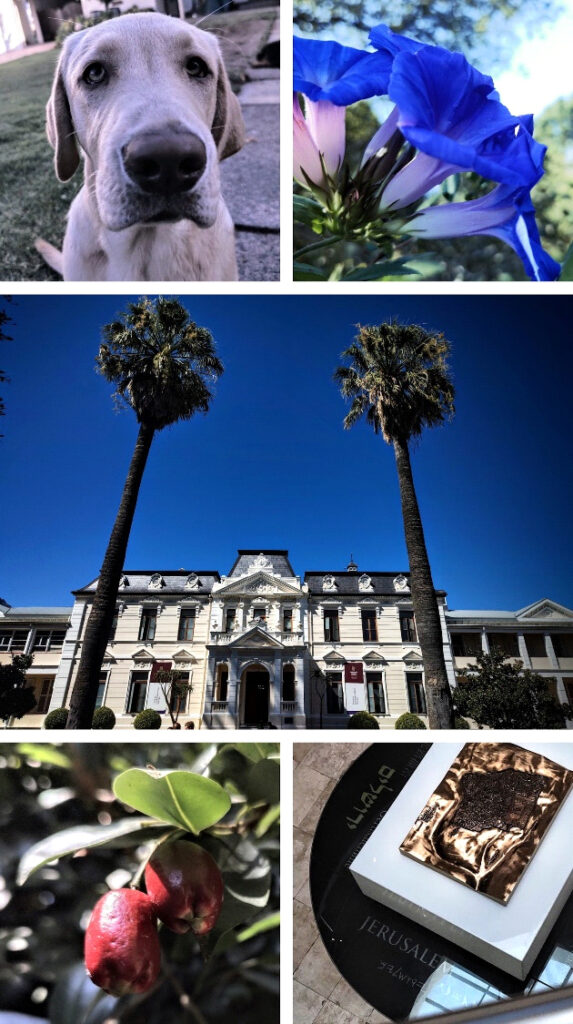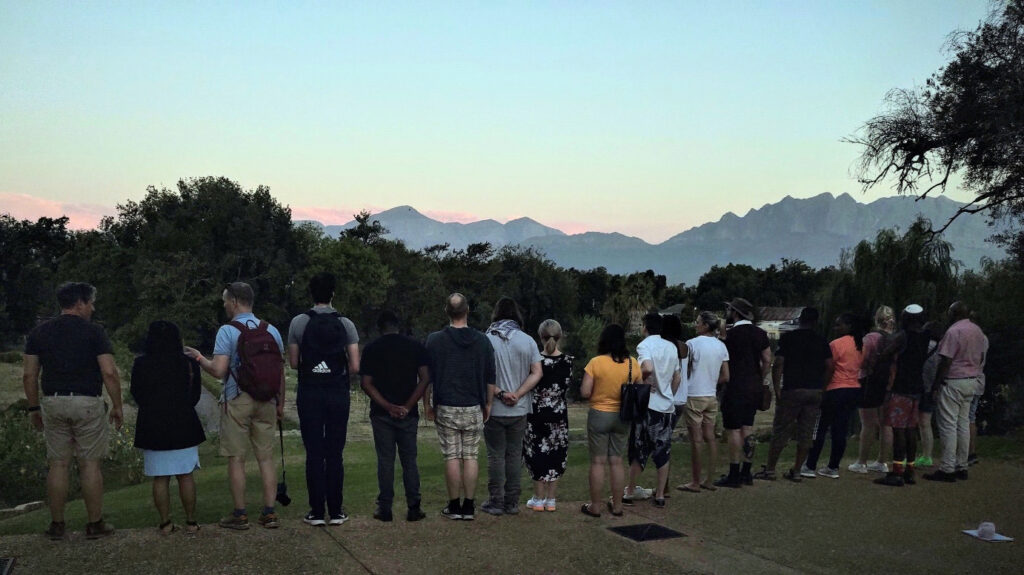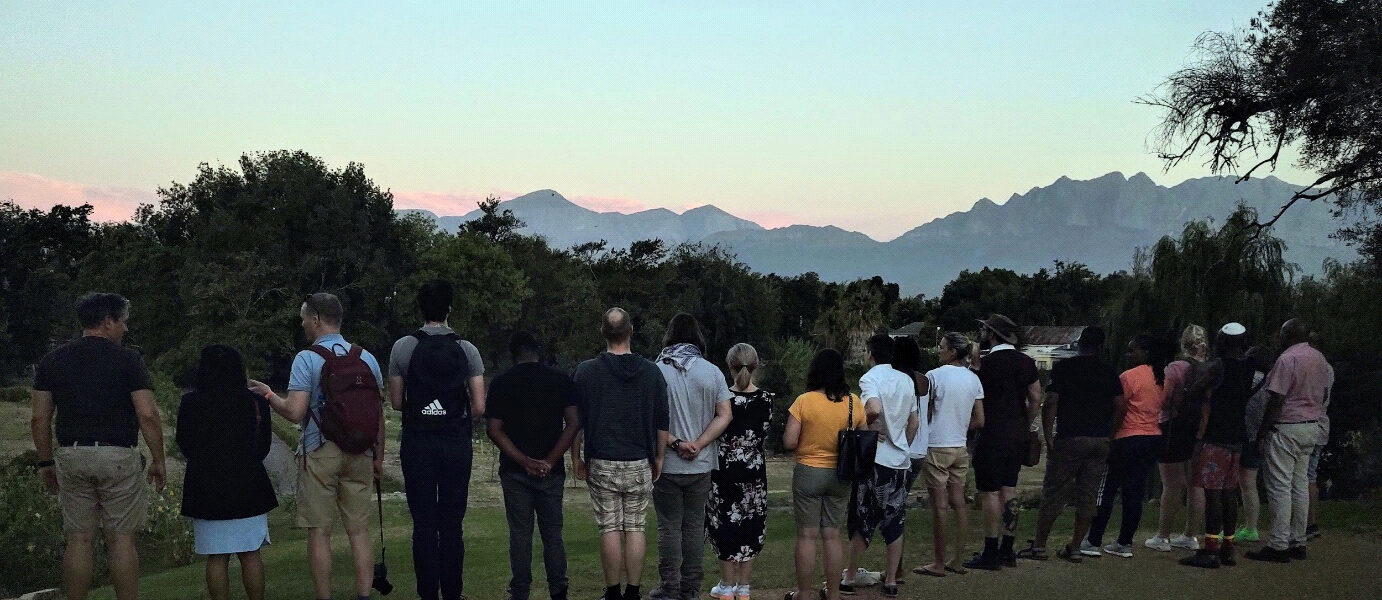Ecumenical Abraham
4 juni, 2024
The theological course Abraham Goes Global is a cooperation between Åbo Akademi University and Stellenbosch University (South Africa) funded by the Finnish National Agency for Education and The Polin Institute 2023-2024 and 2024-2025. The aims are to widen the perception of theology to cross boundaries of religion at both universities, to exchange expertise on contextualised forms of religion, and to deepen the students’ and teachers’ understanding of interreligious and intercultural dynamics in religions. This blog is the first of six to present reflections of the Finnish students visiting South Africa in February-March 2024.
It had been six months since the diverse group of students and professors from Finland and South Africa had seen each other in Helsinki, the capital city of Finland. Summer was over and the farewells were real: the depth of emotions that were shared embodied a level of ecumenical understanding. Even though the course wasn’t supposed to be so homogeneous in its religious landscape, most of the participants held Christianity as their “to-go” religion. Or “from where they ascended”.

Photo: Kalervo Kirveennummi.
It’s difficult to say whether it was the welcoming African cultural atmosphere, the warm weather and delicious breakfast combined or the more or less Christian-based understanding of belonging to the same moral and ethical body, but the gap in time felt more of six hours than months. We were on a mission, not as missionaries, but as a group of individuals who were sent to involve, investigate, and understand.
It never stops to amaze me how intelligent theologians are. I do not count myself as one of those. Intelligent I mean, surely, I’m still a theologian. The level of curiosity and will to participate in one another’s cultures was phenomenal: never did I feel like an outsider.
The day in Langa Township opened my eyes to the subtlety of our group when it came to respecting other religious traditions. Long story short: the minister and his wife described the church’s history and its struggle to purchase land from the city. Again, the discussion found its way to the social justice issues, only this time it was more powerfully expressed than earlier. At the end of the gathering, one of our students suggested we pray for the congregation.
This one time I noticed some kind of “public” religious activity from our group. It should be noted that we had already attended other churches and met other representatives. This one time was nevertheless so empowering that our group felt the urge to participate in a religious manner. I considered this to be respectful when taking into consideration how careful our group was to not express our own religious thoughts in Jewish synagogues or Muslim mosques. Within the field of scientific, theological research is of course expected to be respectful towards others, but also the ecumenical nature of our visits was, to a positive surprise, phenomenally embedded to these visits.

Andrew Murray Centre for Spirituality, in Wellington. Photo: Kalervo Kirveennummi.
Culture is a phenomenon that should be emphasized while travelling. For me, I considered it of high importance to realize the historical burden that I brought with me from Europe and to acknowledge how I might be seen in an African country. The latter were the thoughts I carried with me from my trip to Kenya in 2014, only to realize that academics are hard-boiled bodies of respect and understanding.
On the last day of our visit, I had the honour of filming one of our fellow students who had to leave before saying goodbye to the group. I urged him to grab one book, whatever book and first read a sentence or two to get into the proper mindset. He chose a book called “The Spiritual Mandela” by Dennis Cruywagen and a sentence that really embodied, not only his own personal views, but to my consideration a silent ideal behind each and every one of our minds:
“By openly aligning himself with one specific religious belief, Mandela knew that he would be giving the impression that he was aligned with a particular group of people, and this was not the kind of exclusivity that he sought to promote in a multiracial post-apartheid South Africa.”
Opinions, whether religious or not, are the most dangerous. They shape our world; they can take us further from one another. When they are expressed, they should first go through a hard-boiled, academic, and heartwarming examination that our group seemed to be initiated to.
Kalervo Kirveennummi

